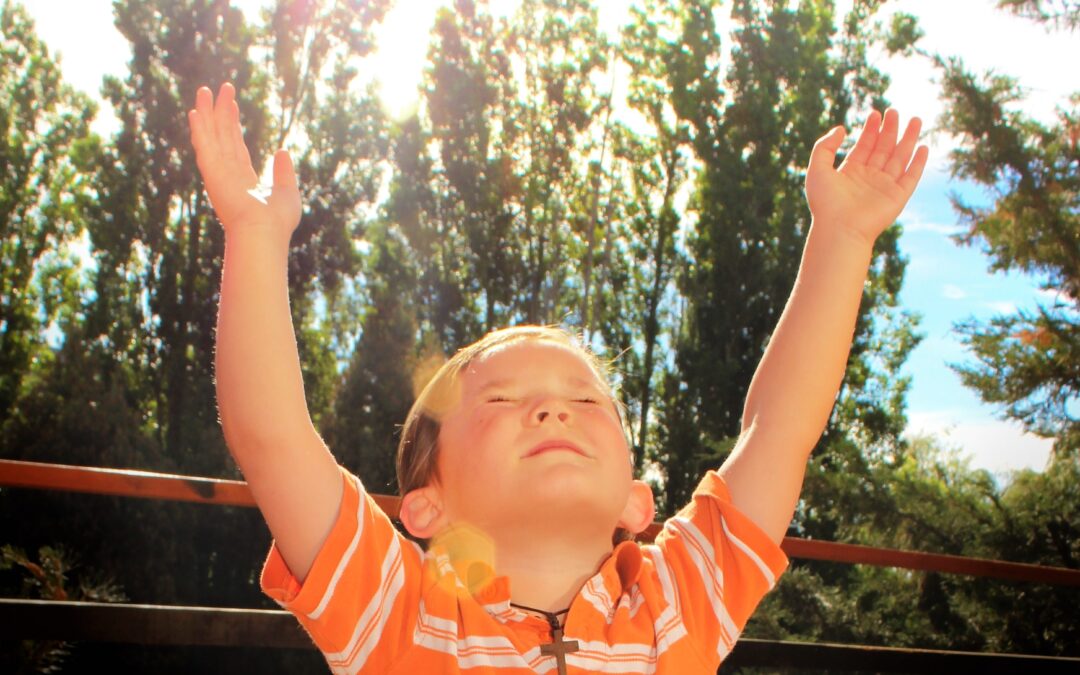Spirituality means a feeling or sense or belief that something greater than us, something more to being human than sensory experience. The greater whole of which we are part is cosmic or divine in nature. It is a belief that there is someone more powerful than all of us, which could be a supreme power, God, creator, or the Universe.
Psychologist and professor Lisa Miller, in her book ‘The Spiritual Child,’ talks about new research on children’s inborn spirituality and its role in long-term mental health. Lisa Miller proposes that the onset of mental issues can be avoided by introducing “natural spirituality” in parenting. In her book, through various clinical studies, she supports the fact that healthy spirituality is essential for sound mental health.
As per Lisa Miller, there are concrete studies to support the fact that children who have healthy spirituality and believe in the higher power, creator, or God are 40% less likely to abuse drugs. They are 60% less likely to become depressed and 80% less likely to have unprotected sex.
Lisa Miller also talks about “Teen angst,” which is, in reality, a developmental depression. When people think that teens withdraw as per her, they are most attuned to the outside world. It is time they start questioning each and everything. It could be a sign of rebellious behavior for others, yet they develop a distinct sense of self at this time. If parents engage with the child, the child develops resilience; however, if their response is inadequate, the child can feel ignored, leading to depression in children.
How to raise a spiritual child
Introducing spirituality at a young age :
Just because spirituality is an abstract concept doesn’t mean children are too young to begin learning about it. Love and kindness could also be considered as impalpable concepts that children can’t touch or see. However, they can feel it when someone loves them or acts kindly towards them. Similarly, they can experience spirituality if they are taught about it at an early age.
Encourage spiritual questions from children:
When Children question spiritual matters, it needs complete attention. Whether the question is, ‘Have you seen the creator?’ or ‘Why bad things happen to good people?’ you should not avoid or ignore these questions from a child.
Maintaining an environment conducive to spiritualism:
Don’t ever underestimate the importance of spiritual practices at home. The Foundation of spirituality is generally initiated at home. Daily prayers, meditations, observing festivals, gratitude practices, and bedtime prayers are the most valuable lessons in spirituality and help instill faith in children. This faith can help them to fight adversities and overcome difficulties when the need arises.
Discuss spirituality with children:
Don’t tell your children the meaning of spirituality. Let them find it on their own. Don’t try to correct them if it doesn’t go along with your line of thinking. Ask them questions and try to find out what they think about spirituality. Have discussions with them on spirituality.
Experiencing spirituality with Children:
Meditate and pray with them. Tell children to keep a gratitude journal and encourage them to use it. Take them out in nature and encourage them to converse with it and feel compassion and gratitude towards the Universe.
If it were possible for us parents to protect our children from heart breaks, adversities, and struggles, we would have certainly done that. However, we all know it is unachievable. We can’t shield them, but we can ensure that they are strong enough to handle the adversities and kind enough to understand others’ pain when they go out in the world. And it can certainly be achieved by introducing spirituality in the lives of children.
“The child is thinking and receiving vibrational thought from you on the day that he enters your environment. That is the reason that beliefs are transmitted so easily from parent to child.” Abraham-Hicks.
Vibha S Kapil



Recent Comments